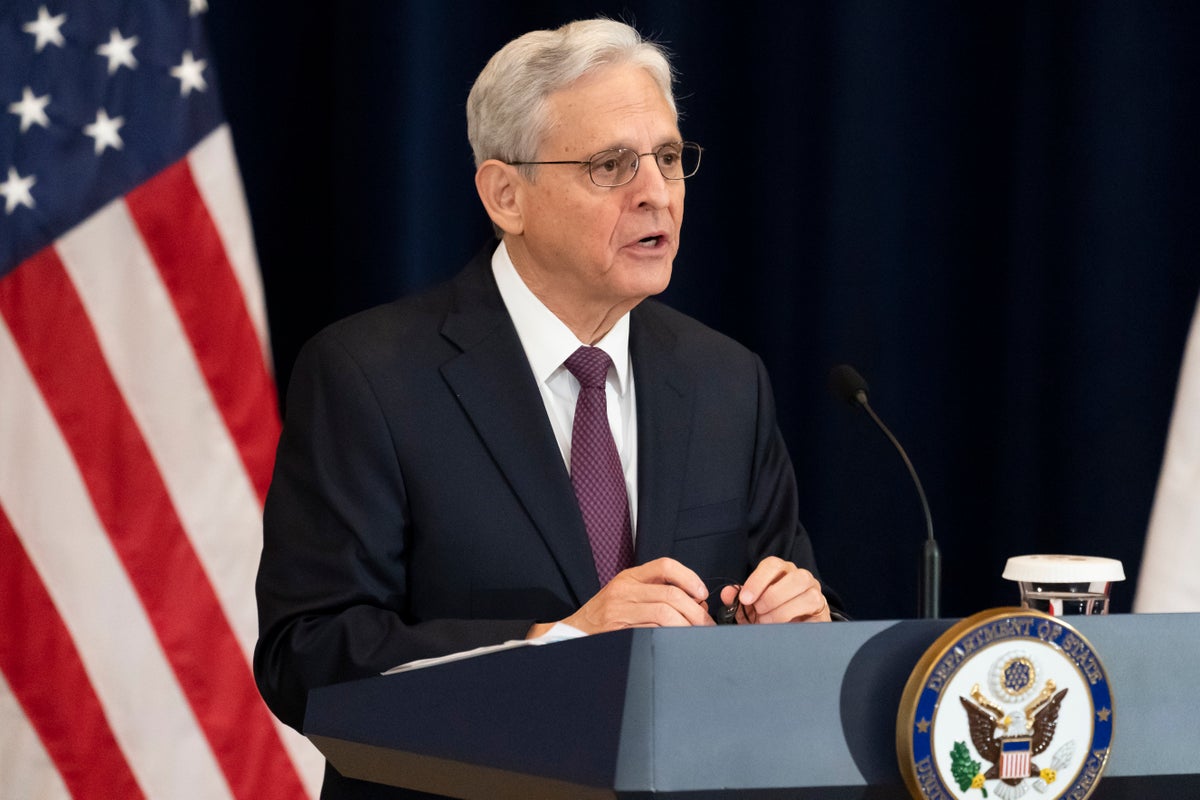
The Biden administration on Wednesday announced a round of criminal charges and sanctions related to a complicated scheme to procure military technologies from U.S. manufacturers and illegally supply them to Russia for its war in Ukraine.
Some of the equipment was recovered on battlefields in Ukraine, the Justice Department said, and other nuclear proliferation technology was intercepted in Latvia before it could be shipped to Russia.
The Justice Department charged nine people in separate cases in New York and Connecticut, as well as two oil brokers for Venezuela. The defendants are accused of acquiring the military technology from U.S. companies and then laundering tens of millions of dollars for wealthy Russian businessmen and other sanctioned entities. Some of the defendants are also accused of brokering illicit oil deals for the Venezuelan state-owned oil company.
“As I have said, our investigators and prosecutors will be relentless in their efforts to identify, locate, and bring to justice those whose illegal acts undermine the rule of law and enable the Russian regime to continue its unprovoked invasion of Ukraine,” Attorney General Merrick Garland said in a statement.
The five defendants charged in New York are all Russian nationals, and two have been arrested. All four defendants in the Connecticut case — three Latvians and one Ukrainian — were taken into custody months ago at the request of U.S. authorities.
The criminal charges complement the latest round of Biden administration sanctions targeting Russia.
The Treasury Department's Office of Foreign Assets Control announced sanctions Wednesday against one of the men charged by the Justice Department, designating Yury Orekhov and two of his firms, Nord-Deutsche Industrieanlagenbau GmbH and Opus Energy Trading LLC, for procuring advanced semiconductors and microprocessors used in fighter aircraft and ballistic and hypersonic missile systems among other military uses.
Orekhov and the firms ultimately sent the materials to Russian end-users, including companies designated by various federal agencies, in violation of U.S. export controls.
The Justice Department, Federal Bureau of Investigation, and Treasury’s Office of Foreign Assets Control worked in coordination to identify the Russian network.
Along with sanctions on members of Russian President Vladimir Putin's inner-circle, the U.S. has frozen Russian Central Bank funds and imposed aggressive export controls.
The latest effort is dedicated to preventing Russia from procuring military technologies.
Deputy Treasury Secretary Wally Adeyemo said in a statement Wednesday that Russia has increasingly struggled to get the technologies it needs to sustain the war “thanks to the unprecedented sanctions and export controls imposed by our broad coalition of partners and allies.”
“We know these efforts are having a direct effect on the battlefield," he said, “as Russia’s desperation has led them to turn to inferior suppliers and outdated equipment.”
Information from the Office of the Director of National Intelligence, presented Friday at the Treasury Department, said Russia has lost more than 6,000 pieces of equipment since the beginning of the war in late February and is turning to Iran and North Korea for supplies.
Russia is reliant on foreign production machinery and ongoing banking sanctions have undercut the Kremlin's ability to obtain financing for importing military equipment, the ODNI said.







